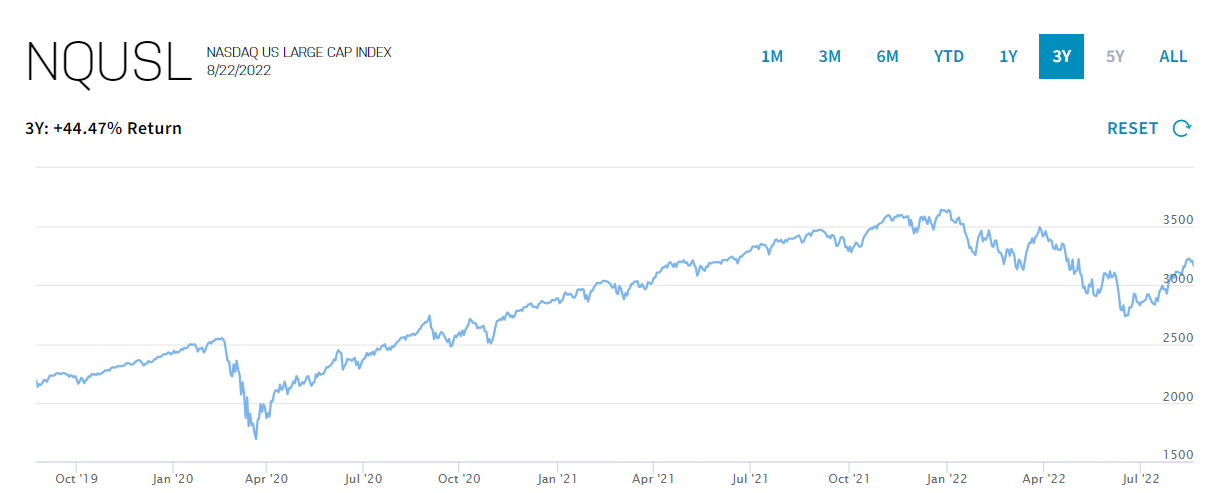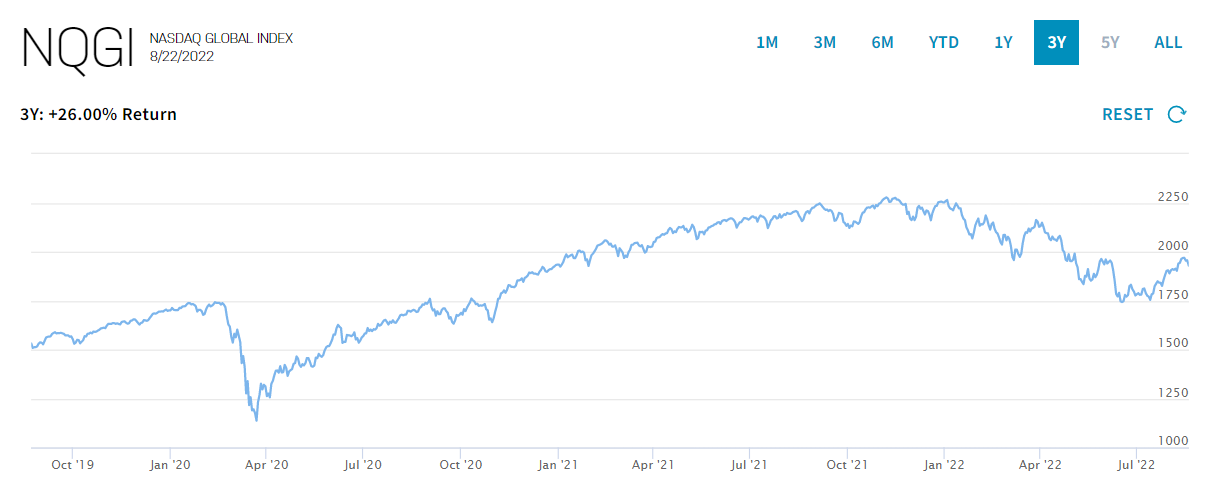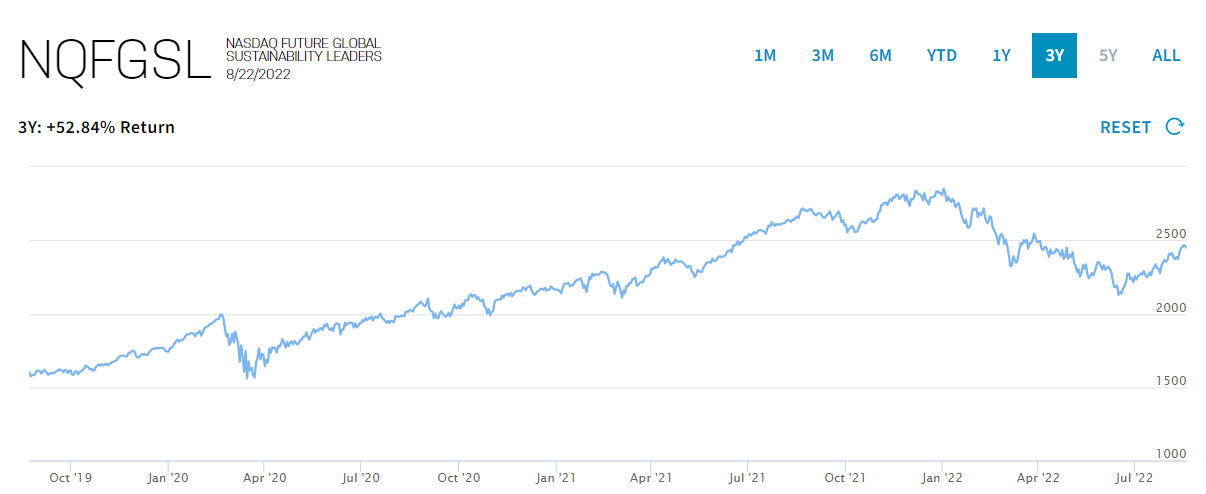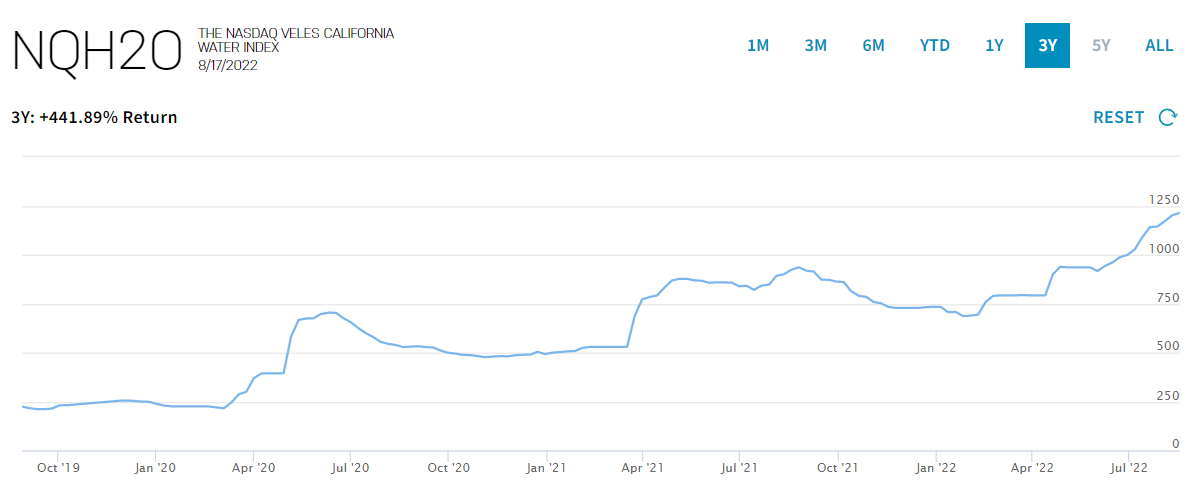
Five Myths about Nasdaq Indexes
The Nasdaq Index business has evolved from tracking companies listed on Nasdaq to a global and comprehensive suite of indexes tracking global markets in over 50 exchanges and countries across five asset classes. Yet, myths about Nasdaq indexes are still circulating amongst both professional and retail investors. In response, we’re breaking down some of the most common myths about Nasdaq Indexes and reviewing some examples.
Myth #1: Nasdaq Indexes only include Nasdaq-listed companies
The popular Nasdaq Composite Index — “the Nasdaq”— launched in 1971 and included all companies listed on The Nasdaq Stock Market. Other flagship indexes, such as the Nasdaq-100® Index, Nasdaq Biotechnology™ and OMX Stockholm 30™, all track companies listed on Nasdaq-owned exchanges (Nasdaq acquired the Swedish OMX Exchange in 2007). While Nasdaq-exchange-based indexes continue to gain popularity among investors, most people are not aware of how much the Nasdaq index suite has grown to offer broad market exposure.
Myth-buster index: The Nasdaq U.S. Large Cap Index™ (NQUSL™) tracks the performance of large cap securities in the United States listed on all major U.S. exchanges and calculated in U.S. dollars.

Myth #2: Nasdaq Indexes are all U.S.-based
Although Nasdaq’s roots started in the United States, we have diversified and expanded into a global technology company.
A pivotal moment for us was the launch of the Nasdaq Global Index™ Family (NQGI™) in 2012, which includes thousands of indexes broken down by market segment, industry, region, country and size. Collectively, this index family is based on over 9,000 global securities across developed and emerging markets in 45 countries. While Nasdaq had launched indexes that held global securities prior to NQGI, the launch of NQGI epitomized the evolution of Nasdaq Indexes from a narrow exchange focus to providing investors access to global exposures around the world.
Myth-buster index: The Nasdaq Global Index (NQGI) is designed to track 98% of the investable equity market worldwide.

Myth #3: Nasdaq Indexes only include tech companies
Many people know that Nasdaq pioneered electronic trading. Technology innovation runs deep in our company’s culture. The world’s top technology companies want to list on Nasdaq. These range from tech giants like Apple and Alphabet, to younger, tech-powered companies such as Bumble and Vimeo. In addition to the tech-heavy Nasdaq-100 and Nasdaq Composite indexes, we provide exposure to emerging technologies. Artificial Intelligence & Robotics, Cybersecurity and Cloud Computing are some of our most popular thematic tech strategies.
But Nasdaq Indexes track a wide range of investable industries beyond tech. These range from Telecom and Health Care to Financials and Real Estate.
Myth-buster index: The Nasdaq Future Global Sustainability Leaders™ (NQFGSL™) provides exposure to global stocks taking key environmental factors into account such as environmental, social and governance matters (ESG). The Index is designed to track companies considered to be genuinely fossil fuel free through a passive global investment portfolio. The Index includes securities across ten industries beyond Tech within developed markets excluding Australia.

Myth #4: Nasdaq Indexes only track the equity markets
When people think of Nasdaq, most think of equities or stocks. Naturally, many people have come to associate Nasdaq indexes with equities based on our presence in the listings market. However, Nasdaq indexes cover five asset classes including equities, fixed income, options, crypto and alternatives. If you can trade it, Nasdaq Indexes can track it.
Myth-buster index: The Nasdaq Veles California Water Index™ (NQH2O™) seeks to track the spot rate price of water rights in the state of California.

Myth #5: Nasdaq Indexes track only established market segments
People often mistakenly think a market segment needs to evolve to the point of wide adoption to create a reliable index. As an established leader in the index space, Nasdaq has high standards when it comes to index methodology design, and those standards are used to build indexes tracking emerging themes of all kinds. Nasdaq has been first to provide benchmark indexes for emerging segments using transparent and innovative methodology standards that enable access to new asset classes or investment exposures.
Myth-buster index: The Nasdaq Crypto Index™ (NCI™) is designed to measure the performance of a significant portion of the digital asset market and to provide a benchmark for institutional investment in this new and emerging asset class. The Index is specifically designed to be dynamic in nature, broadly representative of the market, and readily trackable by investors. Launched in February 2021, NCI™ and NCIS™, the settlement version of the NCI Index, is Nasdaq’s first Digital Asset Index suite.

Accessing Nasdaq Index Data
Amid an uncertain market environment, investors are looking for real-time index data more than ever. Nasdaq Global Index Data Service (GIDS) consolidates Nasdaq Global Index data, ETF valuation data and third-party partner data into a standardized real-time feed available directly from Nasdaq, through our vendor partners, or through our suite of streaming and REST Cloud APIs. Through a single feed, GIDS provides access to data for thousands of indexes and ETFs to monitor an array of investment strategies. Visit the GIDS page on Nasdaq.com to learn more about coverage and delivery options.
Nasdaq®, Nasdaq-100 Index®, Nasdaq-100®, NDX® and NCI™ and NQH2O™ are trademarks of Nasdaq, Inc. The information contained above is provided for informational and educational purposes only, and nothing contained herein should be construed as investment advice, either on behalf of a particular security or an overall investment strategy. Neither Nasdaq, Inc. nor any of its affiliates makes any recommendation to buy or sell any security or any representation about the financial condition of any company. Statements regarding Nasdaq-listed companies or Nasdaq proprietary indexes are not guarantees of future performance. Actual results may differ materially from those expressed or implied. Past performance is not indicative of future results. Investors should undertake their own due diligence and carefully evaluate companies before investing.
ADVICE FROM A SECURITIES PROFESSIONAL IS STRONGLY ADVISED. © 2022. Nasdaq, Inc. All Rights Reserved.

%20Financials%20%7C%20Nasdaq&_biz_n=22&rnd=737964&cdn_o=a&_biz_z=1743658528958)
%20Historical%20Data%20%7C%20Nasdaq&_biz_n=23&rnd=356639&cdn_o=a&_biz_z=1743658529354)
%20Real-Time%20Quotes%20%7C%20Nasdaq&_biz_n=24&rnd=451661&cdn_o=a&_biz_z=1743658529355)

